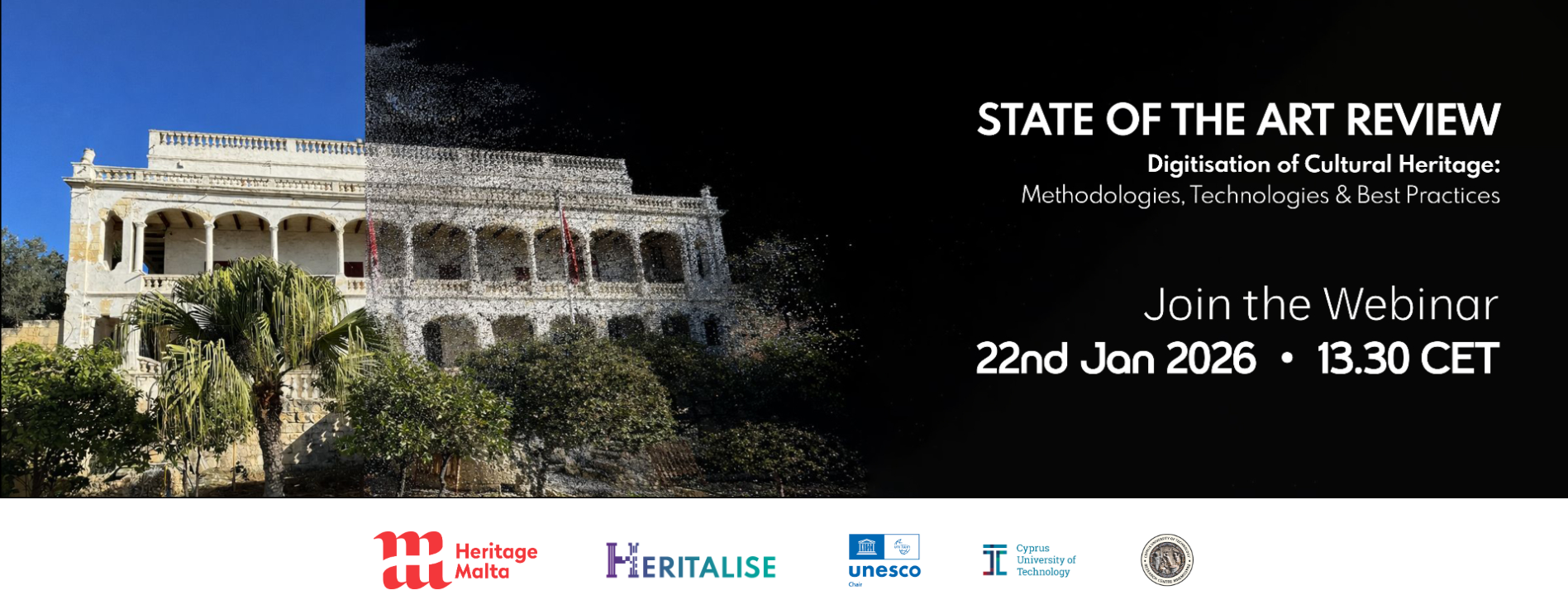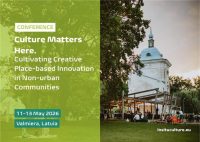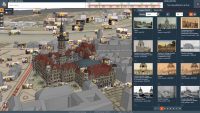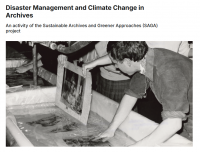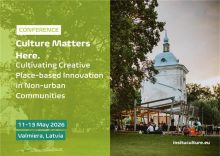Intellectual Properties (mostly in the form of copyright) permeate all areas of the research carried out by the RICHES team. From the re-use of existing to the generation of new forms of cultural heritage, copyright is relevant to its use, re-use and dissemination. A framework of understanding for IP is being developed within the RICHES project that highlights the importance of copyright to digital cultural heritage, cultural heritage that is transformed from analogue to digital and cultural working practices that embrace co-creation as the norm.
Within the work of researching the context of change in which cultural heritage is held, preserved curated and accessed, IP is relevant to mediated (cultural heritage that is managed, held, curated, transmitted in or through institutions) and unmediated heritage (cultural heritage that is independently produced, transmitted, shared or exists without the management or mediation of agencies/institutions), performance based cultural heritage, physical spaces places and territories, the transfer of traditional knowledge to new productive contexts. For example, when thinking about mediated and unmediated heritage, when formal (mediated) and contemporary media and content are protected by copyright then what impact does that have on the cultural, curatorial and creative agendas of participants? To what extent does the policy environment influence choices? If the mediating institution, for instance, needs to develop streams of finance, then does it rely on copyright in its heritage to produce a revenue stream?
When we consider the context of change in which performance based cultural heritage is made, what role does copyright play in influencing decisions around the process from making to experiencing performance practices? How does the law support the distribution of copies of these performances? And what impact does the use of digital technologies have on the existence, exploitation and enforcement of copyright?
Moreover, questions that arise when considering the transformation of physical spaces, places and territories include the role of IP rights in 3D representations of urban planning and the use of social media on the transformations of physical places. To what extent might copyright be a help, or a hindrance, in supporting the use of new social media in this space?
And when traditional knowledge is transferred to productive new contexts (such as traditional hand-making skills transferred into advanced manufacturing sectors) through the use of 3D printing, how does copyright impact on the use of this technology by memory institutions and the cultural heritage that they hold? What copyright model using this new technology would best support the transfer and re-use of our cultural heritage to new productive contexts?
While thinking about digital cultural heritage practices for identity and belonging – through the lenses of co-creation and living heritage for social, territorial and community cohesion – and for the promotion of places and territories, what role does copyright play?
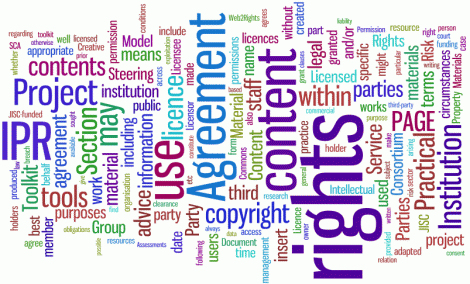 Questions to ask include the extent does to which our copyright framework supports the co-creation of digital cultural heritage developed by diverse communities. How, if at all, does the law support the ownership and dissemination of co-created digital cultural heritage in this domain? Are those who contribute to the creation of cultural heritage in this space given any rights over subsequent ownership and preservation of the cultural heritage? How is this managed? Will the co-creators have rights in the works? Or if not rights, will they benefit in some way? If so, how?
Questions to ask include the extent does to which our copyright framework supports the co-creation of digital cultural heritage developed by diverse communities. How, if at all, does the law support the ownership and dissemination of co-created digital cultural heritage in this domain? Are those who contribute to the creation of cultural heritage in this space given any rights over subsequent ownership and preservation of the cultural heritage? How is this managed? Will the co-creators have rights in the works? Or if not rights, will they benefit in some way? If so, how?
In addition questions may arise around rights and interests in names when linked to terroir, raising its own challenges around the rights of the individual vs the rights of the collective. And when digital technologies are used to augment and improve visitor experiences, what role can and should copyright in the content play in supporting and facilitating those experiences? Does copyright have a role to play in supporting the sustainability of place making efforts?
In relation to digital libraries, collections, exhibitions and users questions arise around how the copyright in the contextualized integrated digital collections is to be managed. Who will own the rights? Will the works be limited to educational use? Or will other uses be permitted? Will new creation using existing collections be encouraged? And what will be the place of copyright in that?
And in relation to virtual performances, questions arise as to how the intellectual property and performers rights in the new digital performances are to be managed. Who will own and who will control the digital performances? Will copyright be used as the basis of dissemination strategies? How will copyright be enforced?
If you work in the field of Cultural Heritage as curator, administrator, policy-maker, scholar, researcher, educator, author or creator and are willing to reflect on how digital technologies and the new co-creation practices are putting new challenges to the current IP-framework please complete the following survey. This questionnaire and its research cues were discussed among the project’s Partners; now it has been opened to our readers, in order to collect their feedbacks. Contributions to the survey will offer new material to RICHES’ research on IP, whose results will be soon revealed among the project’s outcomes.
Please, answer the questions of the following questionnaire:
For more information about the RICHES Network of Common Interest click here or contact us at info@riches-project.eu
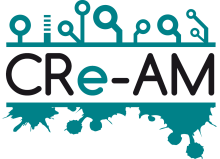 From the 3rd to the 7th of November, the CRe-AM project will host an online debate with its community of technology developers and creative practitioners.
From the 3rd to the 7th of November, the CRe-AM project will host an online debate with its community of technology developers and creative practitioners.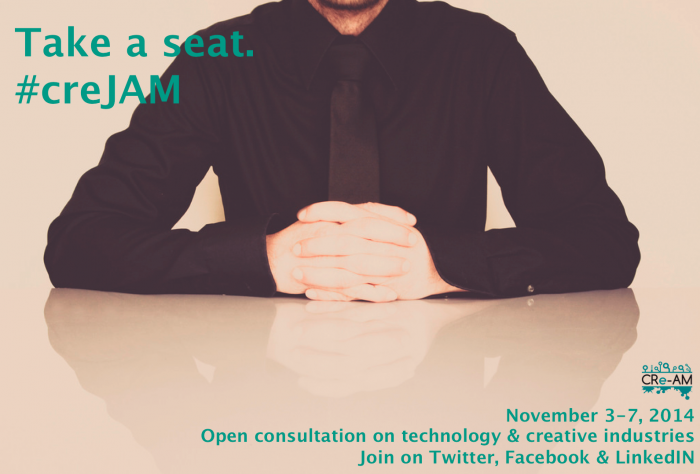


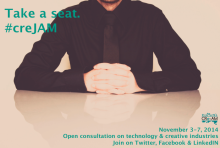

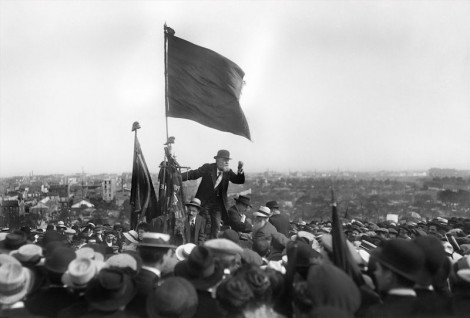
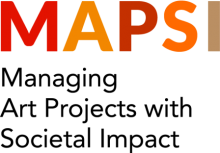
 Managing Arts Projects with Societal Impact (MAPSI) refers to a specialisation in management of artistic projects with societal impact and aims to create an international network focusing on educating cultural managers and facilitators to manage and mediate artistic and cultural projects with societal impact. MAPSI will integrate the transnational and interdisciplinary fields of art, management and societal impact by developing a novel understanding on the interaction between art and society and increasing the skills and competences of future cultural managers to foster the valuable interface.
Managing Arts Projects with Societal Impact (MAPSI) refers to a specialisation in management of artistic projects with societal impact and aims to create an international network focusing on educating cultural managers and facilitators to manage and mediate artistic and cultural projects with societal impact. MAPSI will integrate the transnational and interdisciplinary fields of art, management and societal impact by developing a novel understanding on the interaction between art and society and increasing the skills and competences of future cultural managers to foster the valuable interface.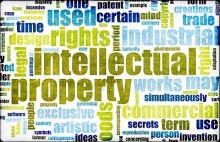


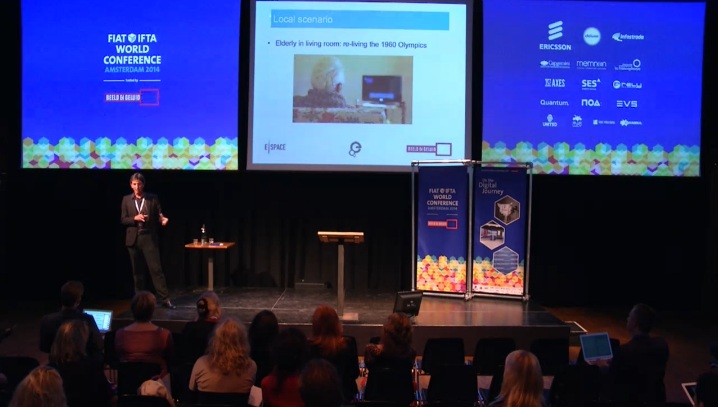
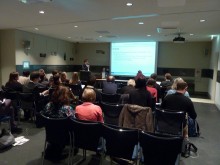








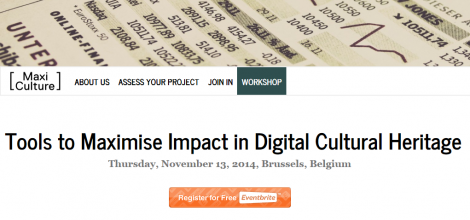
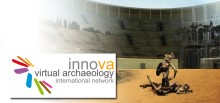

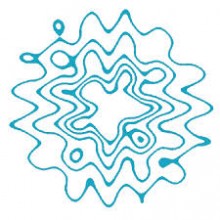
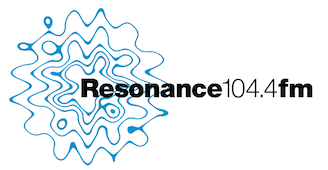 A programme entitled Making Conversations broadcasted by the British Radio Resonance 104.4fm included Europeana Space, on Tuesday 21 October 2014 (and repeated Saturday 25th).
A programme entitled Making Conversations broadcasted by the British Radio Resonance 104.4fm included Europeana Space, on Tuesday 21 October 2014 (and repeated Saturday 25th).